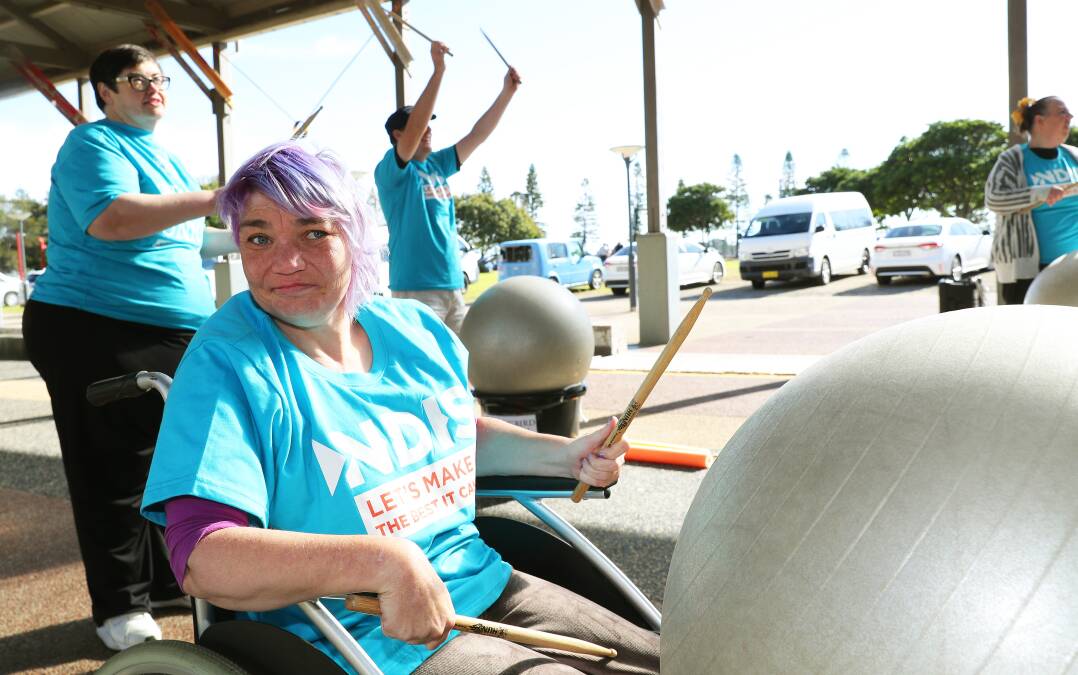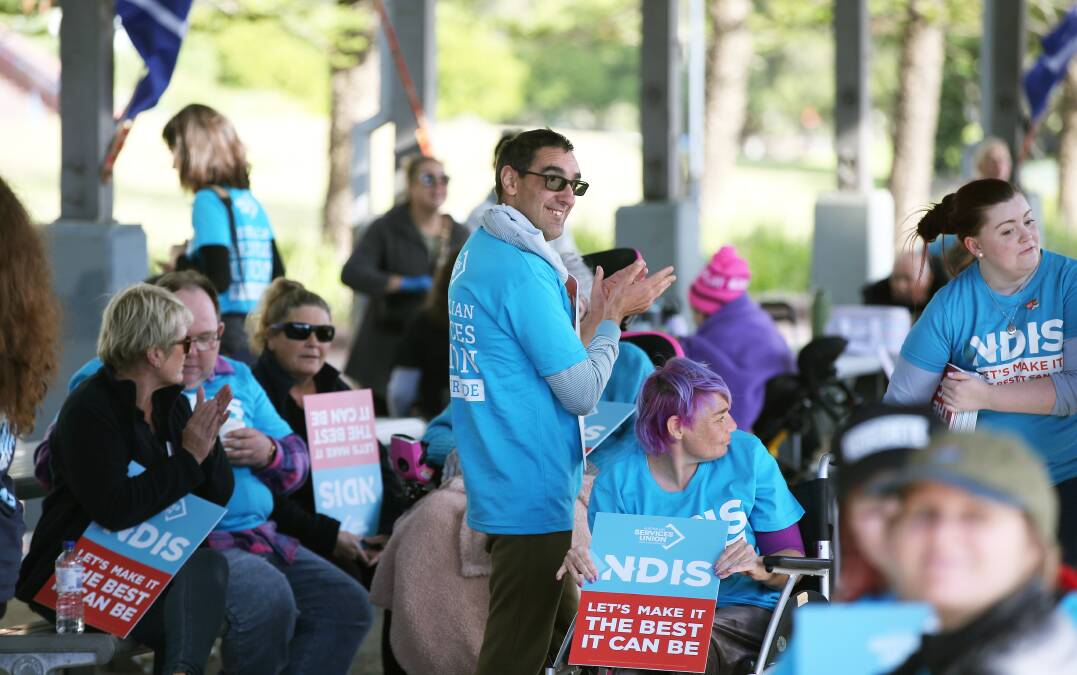Disability workers need more training and higher pay to stay employed, according to a peak state union.
Members of the Australian Services Union (ASU) are rallying across NSW this week following calls to government for ongoing accredited training and portable leave schemes.
A group of about 100 carers and clients gathered at Newcastle Foreshore on Tuesday before a larger event in Sydney on Wednesday.
The rallies come on the tenth anniversary of National Disability Insurance Scheme (NDIS), as the sector faces ongoing financial woes.
Newcastle activist Michelle Parry has worked in the disability sector for more than 30 years. She said the rally promoted "power in numbers" to improve conditions for the "entire disability community".







ASU NSW and ACT secretary Angus McFarland said treating NDIS workers as professionals with "diverse skills" was key to retaining staff.
NDIS employees do not currently need any formal training to be employed, which Mr McFarland said ignores the "diverse" needs of staff and clients.
"Demand for the NDIS is growing, yet the sector has one of the highest attrition rates in Australia with up to one quarter of workers leaving each year," Mr McFarland said.
Ms Parry said NDIS workers were not treated as professionals, adding to issues of undertraining.
"This is a speciality field and you are all career people," Ms Parry told the crowd.
Mr McFarland said the new state government was "considering" further requests tabled by the union, including a portable training scheme which would allow accreditation to be recognised across different employers.
Under the status quo, Mr McFarland said a "very casualised" workforce is not incentivised to undergo training.
A similar issues persists with leave, where workers "bouncing" across multiple employers do not accrue hours.
"They're missing out on holidays, mental health days and personal carer obligations because they can't bank up the leave," Mr McFarland said.
"In addition to increased training and leave, ASU said competitive wages were vital to staffing numbers. The union is investigating more than 30 providers over alleged wage theft and fraud in NSW and two providers to watchdogs this month. ability at the same time," Mr McFarland said.
"It's criminal to underpay staff. It is even worse during a cost of living crisis."
From next month, workers will be entitled to a 5.75 per cent pay increase, which averages out to about $66 per week.
"I question whether the full benefit will be passed on to all workers if greedy providers continue underpaying our essential workers," he said.
To see more stories and read today's paper download the Newcastle Herald news app here.







